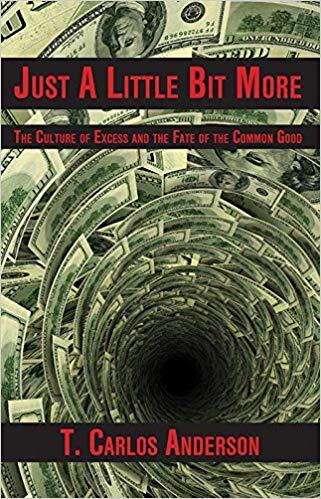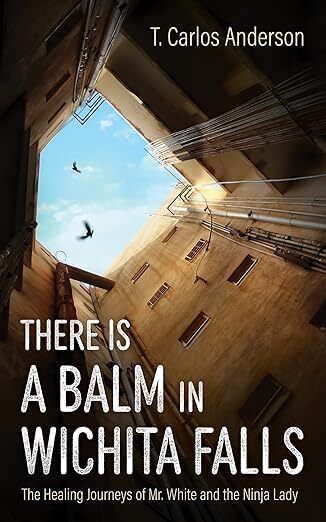“You Should Write a Memoir”
“You Should Write a Memoir”
Jim Harrington stared back at me over lunch with a scowl. He had just told me to fudge off, in so many words. His mouth, however, betrayed a slight smile. He knew I was right as I met his uneven scowl with a wide, confident grin. I had just told him that he needed to write a memoir.
It was October 2022. La Fruta Feliz, an unpretentious Mexican restaurant on Austin’s eastside, has been Jim’s go-to lunch spot for years. We had met there a number of times for almuerzo since 2017, shortly after we were introduced to one another by mutual friend and pastoral colleague, Jay Alanis. Jim, after a decades-long career as a civil rights lawyer, became an Episcopal priest and served a Spanish-speaking immigrant congregation, Proyecto Santiago, at St. James Episcopal Church. When we met—included as an addendum story below—Jim invited me to preach as part of his troop of once-a-month Spanish preachers for Project Santiago. All of us, including Jay, did so pro-bono style, following Jim’s lead as an unsalaried priest.
I knew of Jim and of some of his work before I met him. As I got to know him better, he shared with me his “call story”—how he originally intended to become a Catholic priest, back in the late sixties, but switched gears and eventually went to law school instead. All of this happened in his home state of Michigan, where he had worked alongside seasonal farmworkers—all of them Mexican or of Mexican descent—for seven consecutive summers. The work involved setting up health clinics, enforcing minimum wage laws, distributing supplemental food and vouchers, and conducting evening adult education and worker rights classes. As it turned out, there would be time for seminary and ordination later. Decades later. Fresh out of law school in the early seventies, Jim came to South Texas to continue to work alongside farmworkers. And just like in Michigan, working alongside farmworkers in Texas branded him as an “outside agitator” in the eyes of owner-planters. It was exactly where Jim felt called to be, doing exactly what he felt called to do: confronting injustices in the spirit of God-inspired anger and compassion—and pissing off entrenched power brokers in the process.
What a story in and of itself, and what a story for a memoir.
After Jim quit scowling at me over the chips and salsa on our table at La Fruta Feliz, I told him I had a contact at UT Press, which I figured to be a most appropriate publisher for such a book. Jim taught as an adjunct professor in UT’s law school for twenty-six years while heading up the Texas Civil Rights Project in Austin. Jim busted his tail in the writing process, and UT Press took him up on his proposal. The Texas Civil Rights Project: How We Built a Social Justice Movement was released on September 16. Jim has been invited to speak at the Texas Book Festival, November 8–9, to be held in downtown Austin, in and around the Capitol.


 At La Fruta Feliz once again with Jim, August 2025
At La Fruta Feliz once again with Jim, August 2025For all of my needling and mischief, Jim inscribed a pre-release copy of his book for me. Having read a number of early manuscript chapters at Jim’s request, I relished the opportunity to read the hardcover book, the final product of Jim’s faithful rewriting and tweaking with the help of an experienced editor. I am profoundly biased, obviously, but this book is a powerhouse and a whirlwind simultaneously. Jim’s focus never wavers from the folks—Texas Valley farmworkers and others—whom he and the TCRP represented over the years. There’s also a pointed focus, humorous at times, upon the politicians, owner-planters, bad-actor law enforcement officers and establishment sycophants they encountered along the way.
A heads up: Don’t think that this history/memoir doesn’t have anything to say about what’s happening in our country and society today. I purposely use a double-negative to make my point! As many of us see the current administration’s policies eroding basic civil rights, including voting rights, this book shows how the (metaphoric) battles were won for worker and civil rights and can been won today. It’s an encouragement to read how truth can be spoken to power effectively, and how the strength of a united people group can withstand and even defeat the negative effects of long-standing racism and worker abuses.
Jim shares his call story, concluding with his law school graduation ceremony when he pinned a United Farm Workers “Boycott Grapes” button to his commencement cap, in the first chapter—and an incredible ride ensues from there as he comes to the Texas Valley in 1973. Subsequent topics include organizing (protesting, marching, striking and negotiating) alongside and on behalf of farmworkers, confronting police brutality, fighting for grand jury reform, and taking on the Texas Supreme Court to institute legal pro-bono support for low-income Texans. Jim’s writing puts the reader in the midst of the action described in the book: in the fields alongside farmworkers, in TCRP offices as legal strategies are formed, in the courtrooms where judges and juries contemplate giving TCRP clients their constitutional rights and privileges.
You already know I’m biased when it comes to this book. It fits the bill for many of us—citizens concerned that the United States is losing its place as the lead guardian of democracy, lawyers and law students, and those wanting to forge ahead in the important work of standing up for what’s right in the face of ongoing injustice.
For the record, I’m not the only one who suggested to Jim that he write his memoir. My words, as if the last straw, were simply delivered at the right time. And harking back to that lunch in October 2022, if you know Jim, you know exactly what he did say to me when I told him that he needed to write a memoir. He didn’t say “fudge.” Ha.
There are plans for the book to be translated into Spanish. Jim should have los detalles of the Spanish version’s availability around the beginning of 2026.
Addendum Story: My wife, Denise, has worked as a stalwart paralegal at Bickerstaff, Heath, Delgado and Acosta since 2008. The firm employed Texas civil rights legend Myra McDaniel, a UT law school grad and the first African American to serve as Texas Secretary of State, (1984–87). Upon completion of her term, she became a managing partner at Bickerstaff. Denise and all other employees at the firm were honored to work alongside Ms. McDaniel, who was universally loved and admired.
Myra was a member of St. James Episcopal Church on Austin’s eastside. She passed away at 78 years of age in 2010. Her funeral at St. James, which has a large rounded sanctuary, was standing room only with more than 400 mourners. I attended the funeral service with Denise.
Years later, in 2017, after I had resigned my pastor position at St. John’s/San Juan Lutheran, Denise suggested that we go to worship “at Myra’s church.” I knew the priest at St. James, Madeline Shelton Hawley, and we greeted her before worship started. I mentioned to Madeline that we came to worship at St. James that morning because Denise had worked with Myra McDaniel. Madeline smiled, and simply said that everyone at the congregation loved Myra and missed her greatly.
Toward the end of worship, Pastor Madeline asked all the visitors to stand to be recognized. Of ten or so visitors that Sunday, Denise and I were the last to be recognized as the pastor went around the sanctuary. Because Pastor Madeline knew me, I was pretty sure that I was about to receive the standard positive call-out from one clergy to another—“What an honor to have Pastor Tim Anderson with us here today.” Blah, blah, blah.
To my surprise, that didn’t happen. Pastor Madeline gave the honor of visitor name recognition to “Denise Anderson, who used to work with Myra McDaniel!” At the mention of Myra’s name, the entire congregation—some 150 souls—turned around with wonder and surprise on their faces and began to clap. Denise beamed. And then Madeline simply closed the introduction and said, “and Denise is here today with her husband.”
It was great! It was the first time ever Denise got props in a church setting over and above her pastor husband! It was more than overdue; it was just, right, and salutary!
When the service had concluded and Denise and I were visiting with folks in the narthex, I happened to see my friend and former congregant from St. John’s/San Juan Lutheran, Jay Alanis, a seminary professor at Lutheran Seminary Program of the Southwest. He was surprised to see me and said, “Pastor, there’s someone I want to introduce you to!” Jay was preparing to preach at Proyecto Santiago—he was one of Jim’s troop of Spanish preachers—and brought me over to Jim. Jay introduced us and told Jim that I would be a good candidate for Spanish preaching at Proyecto Santiago.
 With Padre Jim at Proyecto Santiago in 2024
With Padre Jim at Proyecto Santiago in 2024The rest is history, as they say—at least, for me!
T. Carlos “Tim” Anderson – I’m a Protestant minister and Director of Austin City Lutherans (ACL), an organization of partners in Austin, Texas working together to serve low-income individuals and families.



Check out any of my books – Just a Little Bit More (2014), There is a Balm in Huntsville (2019), and There is a Balm in Wichita Falls (2024).



